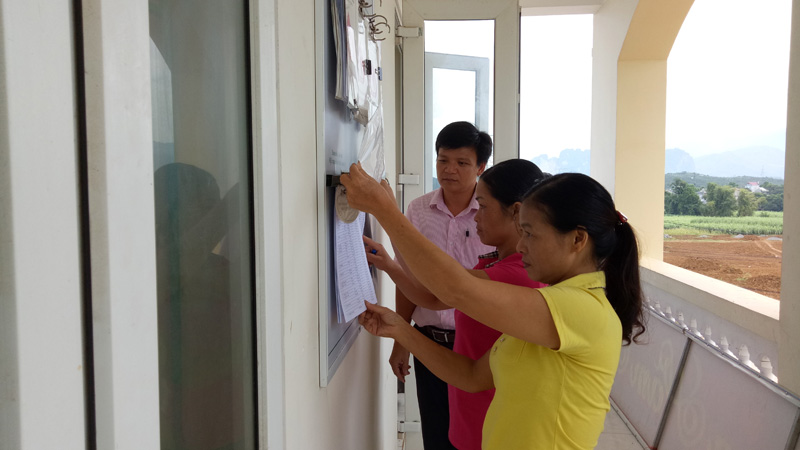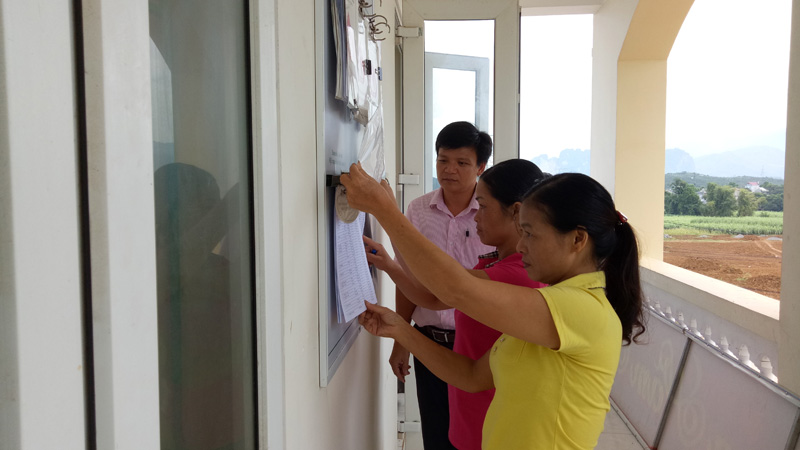


Up to now, the outstanding loans in the
commune has reached over 34 billion VND with 968 households borrowing capital.
The balance of savings is 633 million VND. The commune has 21 savings and loan
groups carrying out 10 policy credit programs. The policy credit activities are
delegated through 4 socio-political organizations.

The local people learn about new credit
programs at a transaction point in Tay Phong Commune (Cao Phong).
Mr. Bui Van Ben, the Vice Chairman of Tay
Phong commune People's Committee, said that in order to achieve the above
results, the Commune People's Committee timely implemented credit policy
programs to the Board of Hunger eradication and Poverty Reduction and four
entrusted politic – social organizations. At the same time, it well organized
the propaganda campaigns on policies and guidelines of the Party and the State
to the masses by announcing via loudspeakers in villages and hamlets about the
forms of lending, beneficiaries. Annually, the Commune People's Committee
directs the review and supplement of policy beneficiaries in a timely, accurate
and convenient manner to access credit policy resources to step by step develop
the household economy and get out of poverty. In addition, the District Social
Policy Bank provided the commune with professional training courses for the
trustee organizations, the management boards of the savings and credit groups;
answered questions during the implementation of credit policy programs to the
association and the savings and credit groups; guiding to update books, follow
up, keep track of credit activities and record books related to delegation
scientifically. At the same time, it regular monitors the loan source of the
savings and capital groups, thus to improve the efficiency of using the
borrower's credit, the quality of credit is always guaranteed. Up to now, the
per capita income of the commune has reached 29 million VND/ year; the rate of
poor households is 10.7%; the rate of near poor households is 12.5%.